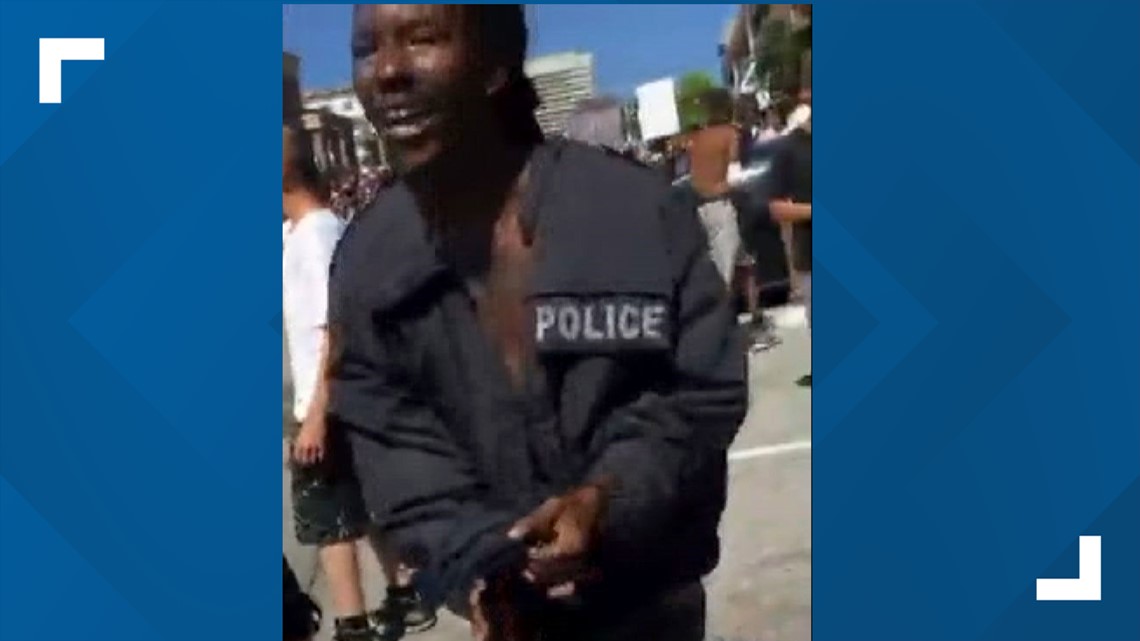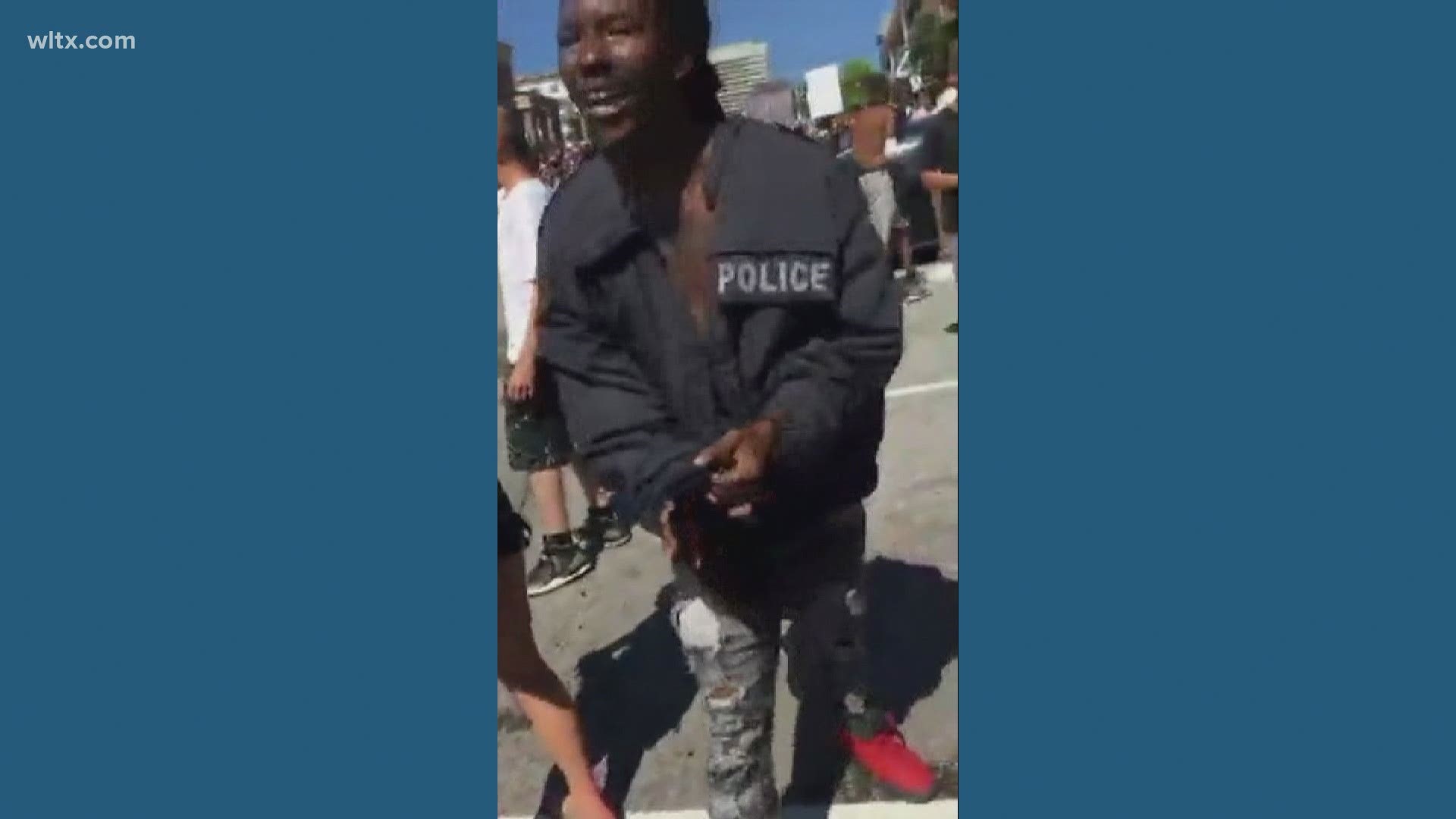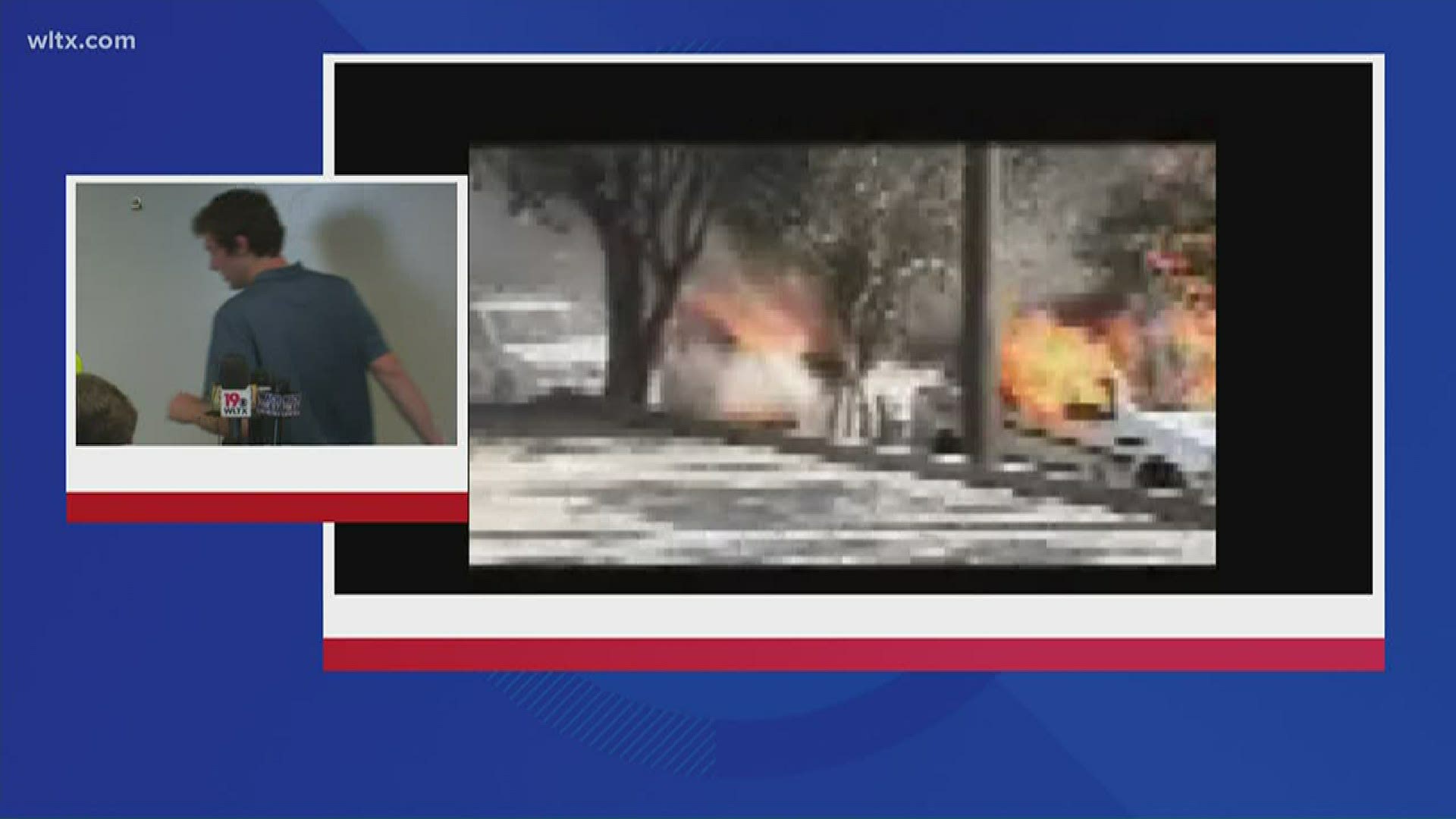COLUMBIA, S.C. — Six people in South Carolina are now facing federal charges related to the violence that broke out during the May 30 demonstrations in Columbia and Charleston protesting the death of George Floyd.
The new charges were announced Tuesday by U.S. Attorney Peter McCoy Jr. According to McCoy, some of those charged have already agreed to plead guilty.
- Karlos Gibson-Brown, 24, of Columbia, has agreed to plead guilty to being a felon in possession of a firearm and ammunition for a riot-related incident on May 31, 2020
- Marcello Woods, 28, of Columbia, has been charged with destroying a Columbia Police Department vehicle by means of fire for riot-related conduct on May 30, 2020.
- Abraham Jenkins, 26, of Charleston, has agreed to plead guilty to civil disorders related to the violence and destruction on May 30, 2020
- Kelsey Jackson, 28, of Charleston, has agreed to plead guilty to arson of a Charleston Police Department patrol car on May 30, 2020.
- Tearra Guthrie, 23, of Charleston, has agreed to plead guilty to civil disorders related to the violence and destruction on May 30, 2020.
- Orlando King, 31, of North Charleston, has agreed to plead guilty to a violation of the Anti-Riot Act related to the violence and destruction on May 30, 2020, and to being a felon in possession of a firearm stemming from an unrelated incident on April 25, 2020.
Woods had already been arrested on local charges just days after the riot. Columbia Police and Richland County deputies say he could be seen on a video wearing a police jacket that he'd taken from a car.
George Floyd died in the custody of Minneapolis Police on May 25, 2020 after an officer there knelt on Floyd's neck for approximately 9 minutes. Protesters in Columbia and Charleston joined those in other cities across the United States to demonstrate against racial inequality and the use of excessive force by law enforcement on people of color.
But during the day of peaceful protests in Columbia, a riot broke out among some who showed up that Richland County Sheriff Leon Lott has said were "criminal opportunists."
According to McCoy, while the large majority of participants exercised their First Amendment rights in a lawful manner, others engaged in violent criminal acts and threatened public safety, including assaulting citizens and law enforcement officers and vandalizing and destroying public and private property.
“This is unacceptable and crosses a line, and this office will always stand up for law and order," McCoy said. "We worked diligently with our federal, state, and local law enforcement partners to identify, arrest, and prosecute the individuals whose violence, vandalism, and destruction violated federal law. By escalating and inciting violence, these individuals interfered with the legitimate forms of expression and Constitutionally protected activity.”
In the last week, federal law enforcement authorities in the District of South Carolina have charged six individuals for crimes committed during demonstrations throughout South Carolina, including arson, inciting a riot, and civil disorders. Some of those defendants have agreed to plead guilty to the charged crimes. According to public documents filed with the federal district court, the following defendants have recently been charged with, or agreed to plead guilty to, the following federal crimes:


Woods was arraigned in federal court Thursday, while court dates for the remaining defendants have not been scheduled. Several of the charges carry significant maximum prison sentences. For example, arson is punishable by up to 20 years in prison. Civil disorder and inciting a riot both carry a maximum possible penalty of five years imprisonment.
These cases are being investigated by the FBI, ATF, Charleston Police Department, Columbia Police Department, Richland County Sheriff’s Department, and South Carolina Law Enforcement Division (SLED). Numerous other local police departments and Solicitors’ Offices across the state have assisted in these investigations. The U.S. Attorney’s Office for the District of South Carolina continues to evaluate other cases for potential federal prosecution.


